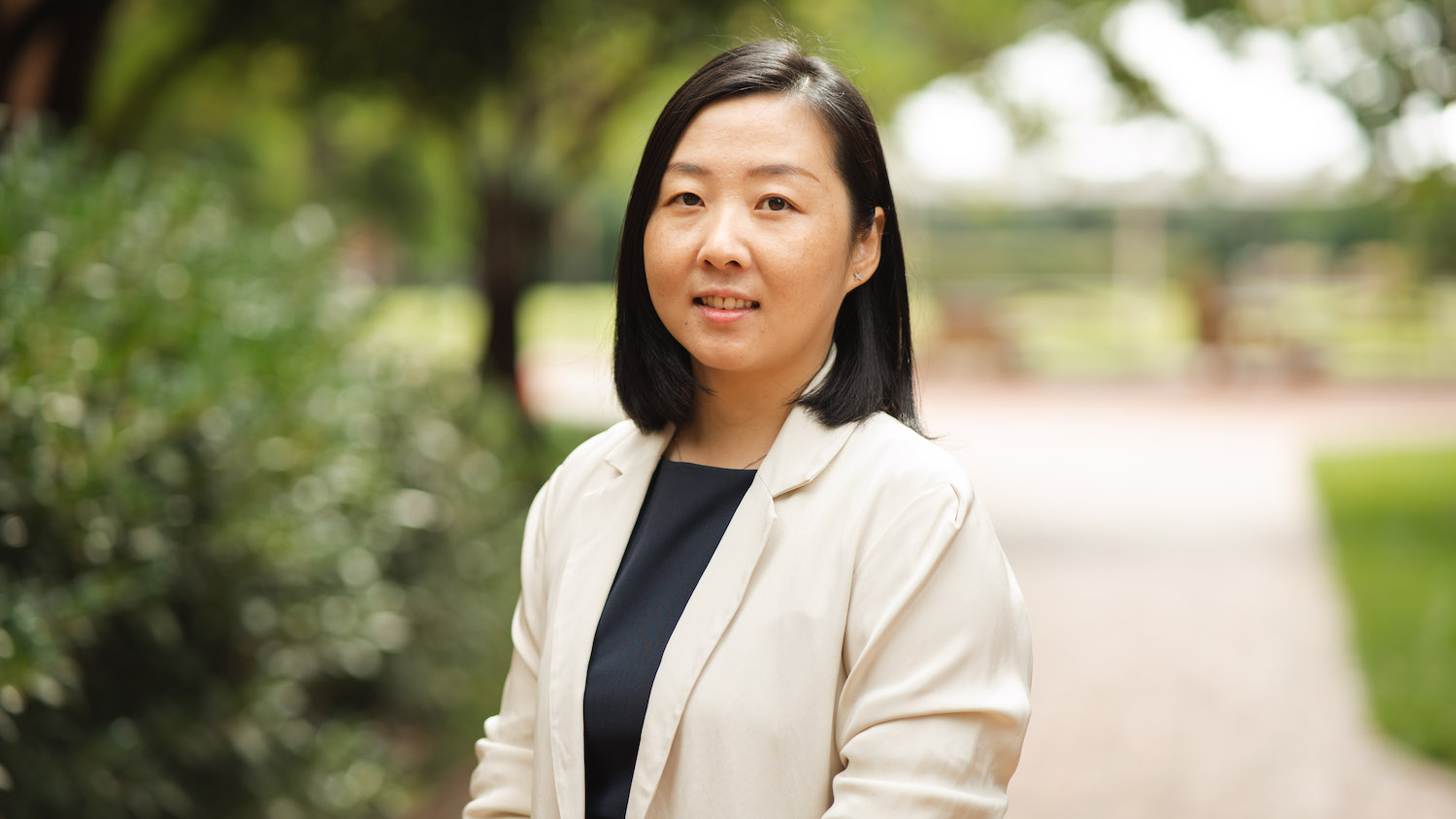Fangfei Guo: Insights to Action

Fangfei Guo developed a keen interest in marketing analytics as an undergraduate student, and she never looked back. Now, in her new role as an assistant professor of marketing analytics at the Poole College of Management, she is transmitting her passion for developing actionable insights to the next generation.
Q&A with Fangfei Guo
What initially sparked your interest in the field of marketing analytics?
My passion for marketing analytics stems from the undergraduate business program I completed in Beijing. This was more than 10 years ago, when data analytics—of which marketing analytics is a subset—wasn’t such a popular field of study. Thankfully, I had a professor who understood the power of analytical tools and predicted the future growth of data analytics. He constantly emphasized the role of data analytics in helping a manager make business decisions, which planted a seed of interest in me and helped me build my fundamental knowledge. Interested in exploring more specific topics in the field, I went on to earn a master’s degree in business analytics and project management at the University of Connecticut and a PhD in marketing at Texas A&M University.
How did industry experience strengthen your expertise in your field?
I had the opportunity to work in marketing analytics at a global research company called IMS Health. In this environment, I grew to understand how textbook knowledge applied to real-world problems. Every day, I used analytics insights to help my clients better understand customer segmentation, evaluate new product performance, and set up optimal pricing strategies. This process of interpreting data and converting it into something that my clients can use was incredibly rewarding. It fueled my desire to keep learning and exploring questions in my field.
“This process of interpreting data and converting it into something that my clients can use was incredibly rewarding. It fueled my desire to keep learning and exploring questions in my field.”
What research topics interest you most?
My current research focuses on how consumers make decisions in retail settings, both in-store and digital. Under this umbrella, one specific research direction I’m currently following is how retailers can best structure their online shipping policies. Some retailers offer free online shipping across the board, while others make shipping free above a certain amount of spending. Still others create membership programs—Amazon Prime being the most well-known—that include free shipping. My goal is to use analytical tools, particularly causal inference, to determine how these policies impact consumer decision making and overall profitability. In a related line of research, I am also exploring questions surrounding returns. These days, consumers can usually make returns through several different channels. I’m interested in unpacking how different return experiences impact their future purchasing decisions.
What appealed to you about joining the faculty at Poole?
“It was clear that there was a unique opportunity to team up with industry leaders and scholars across disciplines to solve real problems.”
I was attracted to Poole’s emphasis on data analytic applications in both academia and industry. It was clear that there was a unique opportunity to team up with industry leaders and scholars across disciplines to solve real problems. Since I came on board, I have been amazed at how supportive and collaborative the culture is here. One of the greatest challenges of this new role is teaching an online course for the first time, so I have been especially grateful for the comprehensive resources available to help support course design and delivery.
How will you divide your time between teaching and research in the coming year?
I’m aiming for a balanced workload. While I will focus more heavily on my research this fall, I am also developing a new marketing analytics course for MBA students. This course will complement existing offerings by taking a deep dive into pricing and promotion strategies. The goal is to help students build a linkage between theory and practice in a foundational area of marketing.
What advice would you give to a student who wanted to build a career in marketing analytics?
First, they need solid fundamental knowledge in general marketing topics, from consumer behavior to promotion strategies. The next step is mastering different analytics tools. This requires a commitment to keep up with the latest technologies, like machine learning and artificial intelligence. The final piece is to seek out opportunities to combine their marketing and analytics knowledge in a realistic setting. I was happy to discover that many courses at Poole already integrate this hands-on, practical experience.
How do you spend your time outside of work?
Since we’re new to Raleigh, my husband and I love exploring the area whenever we can. Fun fact: He is also in marketing analytics on the industry side, so we always have plenty to discuss and debate! I also love traveling abroad. Observing different cultures and learning more about how their local businesses function always gives me fresh examples to share with my students.
This post was originally published in Poole College of Management News.
- Categories: